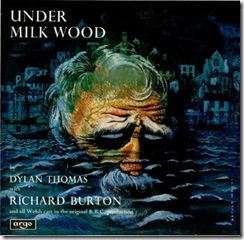I was surprised and delighted to hear Neil Gaiman  the other day on the Guardian Books Podcast from the Edinburgh Book Festival. He was being interviewed mostly about the 10th Anniversary Edition of his book “American Gods”, but at one point in the question and answer part of the podcast, someone asked him if there was one medium he actually preferred to write for. The answer was the above title of this post. This is when I got surprised and delighted.
the other day on the Guardian Books Podcast from the Edinburgh Book Festival. He was being interviewed mostly about the 10th Anniversary Edition of his book “American Gods”, but at one point in the question and answer part of the podcast, someone asked him if there was one medium he actually preferred to write for. The answer was the above title of this post. This is when I got surprised and delighted.
Delighted, because I always like to hear Gaiman talk, and surprised because he declared his favourite medium for his writing to be the radio play. I must admit that his reasons for enjoying spoken word on radio are completely in sync with mine. And because I made radio plays, comedy shows, and music programs for 20-odd years. I do mean “odd”, literally.
Gaiman alluded to the listener’s imagination being required to participate actively with the words, sounds, and voices in a radio play. The thing is that this can be quite demanding in a time when attention spans are more suited to text messages and the 144 character Tweet. Who now is out there who will listen uninterrupted to a half-hour audio production without pictures and commercials?
I think it’s been about a decade now since radio plays were common fare on this country’s national broadcaster. Of course, that’s when there was “broadcasting”. Original works of spoken work were one of the first genres of radio to be stripped out of the CBC’s schedule in favour of talking about things rather than making them.
I can understand that writers, performers, and studio time, is expensive compared to a host, a free guest and a record library. But that’s what private radio was all about. All this is history and I don’t see the radio play coming back soon. And perhaps that’s why Gaiman, and a lot of people I used to work with, can say “this is my favourite medium that I hardly ever do”.
I like to think that the audience itself never went away. We had great audiences. Not huge in numbers like a TV show, but huge in appreciation. Judging from the letters we used to get, our audiences were well-educated, literate, attentive, and extremely diverse. I expect a lot of them are saying about radio: “the radio play was my favourite media genre that I hardly ever hear.”
When I consider that the BBC production of Dylan Thomas’ “Under Milkwood” (with Richard Burton as the narrator) was one of the single biggest influences that made me want to get into radio, I get really sad that this form of entertain, this form of interaction between a writer’s imagination and a listener’s, may be gone forever.
Maybe all us old guys and gals will have to start making our own radio productions and put them on iTunes.
So, thanks, Neil, for the validation of one of the great genres of broadcasting and those of us worked so hard making good radio.
Today’s Listening:
1. The Point (part 1) – Harry Nilsson
2. I Just Wasn’t Made For These Times – The Beach Boys from “Pet Sounds”
3. Once Upon A Summertime – Eden Atwood (check out Blossom Dearie’s version if you can find it)


To this day, I get up on Saturdays and think about turning on the radio, only to remember that there are no longer any of your fabulous comedy shows on the Saturday schedule. For years, comedy on CBC radio was a much-anticipated part of my weekend. Now, Saturday is a hopeless wasteland. So no, the audience never went away. We still listen to CBC, (the only thing worse is all the other stations) but we have not forgotten how much has been lost. I, for one, often say that your radio comedies were “my favorite media genre that I hardly ever hear.”
Thanks Mr. Tim,
Those were indeed the days, and thank you for your fond memories. Like the song goes: “We thought they’d last forever and a day.”
I, too, believe the audience is out there, ready and willing to hear good scripted comedy (and drama). These programs are not cheap, however and, if we were to reach that audience. we’d need to find an alternate way to produce them and distribute them. Podcasts?
The good thing would be that we wouldn’t have to submit program ideas to the gate-keeping managers.
Make a wish. Thanks, again.